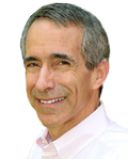
Sleep
Is Sleep Loss Like Marijuana?
Sleep loss increases endocannabinoids just when people get extra hungry
Posted March 5, 2016

An Anatomy of Hunger
Unlike marijuana, sleep loss has been entirely legal in all states since the very beginnings of the Constitution. Like marijuana, sleep loss produces a lot of effects you don’t want, ranging from more frequent colds to more common weight gain. But could the actions of brain cannabinoids be common to the effects of both marijuana and sleep?
Looks like.
The most recent study linking the two comes out of Eve van Cauter’s productive endocrinology lab at the University of Chicago. It’s been known for a long time that even brief, partial sleep loss – of the sort that happens to most parents, innumerable students and all shiftworkers – makes people hungry for fatty, sugary foods. Shiftworkers in particular know this in their bones, when they rush off to vending machines in the middle of the night. Yet shiftwork also suffers from circadian disruption. Blow out our basic body clocks and we look prediabetic and get really, really hungry.
But could brief sleep loss do the same? Many studies show the yin-yang hormones of hunger leptin and ghrelin shift dramatically when people don’t get enough sleep.
But could other body information molecules be part of the game? Including quasi legal ones that mimic endocannabinoids in the brain?
Snacking In the Day
The Chicago study followed one of their standard protocols – four days in the lab with 8.5 night-time hours in bed, four days with 4.5 hours in bed, identical meals at 9 AM, 2 PM and 7 PM, blood draws throughout. The healthy young subjects (graduate students make remarkably agreeable volunteers) demonstrated predictable changes in glucose, leptin and ghrelin levels. This time, other transmitter molecules were also assayed.
Commonly called 2-AG in the press, 2 arachidonoylglycerol is one of the more common endocannabinoids, the molecules produced for many millions of years by mammals everywhere, including us. Though less famous than the laundry list of phytocannabinoids that occur in the marijuana plant, endocannabinoids are found all over the brain. They act a bit differently from the neurotransmitters like epinephrine and serotonin, beloved of drug company depression and anxiety ads. First, endocannabinoids are lipophilic – fat friendly molecules that hang around cell membranes and don't get out much into the hyperactive, water cytoplasm beyond. And they engage in retrograde transmission – in overly simplified terms, the nerve (post-synaptic) that has been “stimulated” can pop endocannabinoids back to the nerve that caused the excitation, changing relative excitability and future response. Endocannabinoids make neurotransmission a two-way street.
Endocannabinoids do much of their business through stimulating two different groups of receptors, called CB-1 and CB-2. Both are potently activated by 2-AG.
So what happens when you partially sleep deprive young adult humans? For the Chicagoans, their 2-AG levels abnormally increase during the day. And they are particularly high when the subject volunteers want fatty foods. The partially sleep deprived group, when offered an afternoon snack 2 hours after a “full” meal, not only ate more than others, but really went for the fatty stuff.
It’s not just your gut bacteria that tell you what you want to eat. Sleep deprived humans go for that fat. Don’t expect fast food vendors to be surprised – they have plenty of sleep deprived clients - and advertise for them actively during the night.
What Causes What?
So now we have evidence even brief sleep deprivation – of the sort all too common in the population – provokes rises of at least one endocannabinoid. We also know that its increasing level correlates with people wanting to eat more food and more fat.
Is this the explanation for the sleep deprivation munchies?
Not so fast. Just like food, sleep is required for life. Sleep deprive an animal long enough and it dies. Sleep deprive a mammal for even a little while, and all kinds of stuff goes off.
Including internal controls on eating. And these are affected not just by ghrelin and leptin, but by markedly changing glucose levels, insulin levels, stress hormone production – plus a few thousand other factors.
Sleep deprivation, the ordinary sort of a short night's sleep, is a big deal, even if we neglect the results, too thrilled by midnight cellphone messages from a partner to consider their effects on our cognition and waistline.
And mood.
Sleep Deprivation and Mood
These days there is great interest in treating depression with ketamine, the horse tranquilizer formerly known as “Special K.” Individuals with severe depression have experienced near miraculous improvements, eagerly chronicled in the media.
Less well described are the short duration of these effects. People receiving ketamine have told me they sometimes did feel much better – for days or a week. Then the improvements rapidly fell off.
Similar effects occur with sleep deprivation.
Though it occurs in many folks, keeping depressed people up at night in a lab predictably improves mood. Many describe the effects as dramatic.
Sadly, the “anti-depressant” effects of sleep deprivation disappear with just minutes of sleep.
Mood can be manipulated by many factors. Getting consistent, long lasting clinical results is a difficult problem.
Bottom Line
Cannabinoids are nearly everywhere in the brain. Sleep deprive people – even for a few hours – and at least one important endocannabinoid increases. This rise may well impact when and what people want to eat.
Yet though sleep deprivation also changes mood, its effects are quite different from that of marijuana. Sleep deprivation's effects are more mind blowing - and vastly more pervasive.



